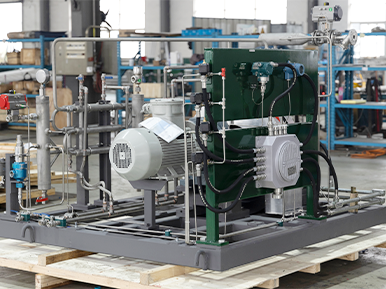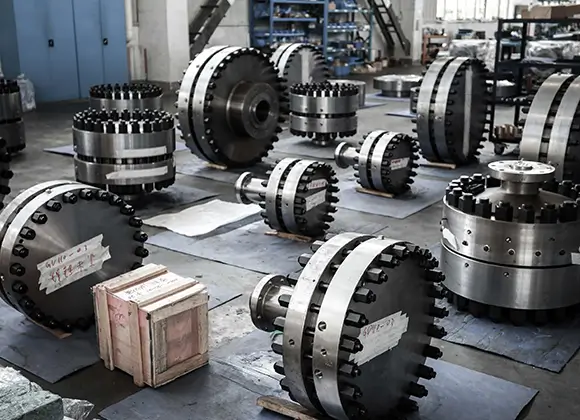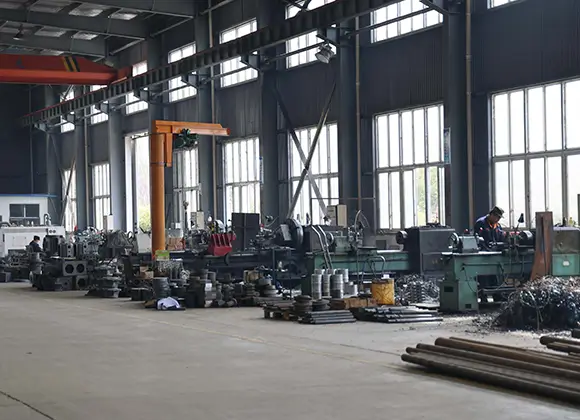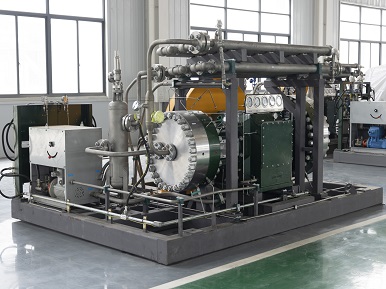

Hydrogen serves as a promising energy source due to its high energy density and potential for reducing greenhouse gas emissions. The importance of h2 storage in the energy landscape cannot be overstated. Efficient storage solutions are essential for leveraging hydrogen to address challenges in the power grid and transportation sectors. This blog aims to explore the advantages and challenges associated with h2 storage, providing a comprehensive overview of its role in the future energy mix.
Hydrogen storage offers significant environmental benefits. Hydrogen production from renewable sources emits only water vapor as a by-product. This contrasts sharply with fossil fuel-based hydrogen production, which emits 830 million tonnes of CO2 annually to produce 74 million tonnes of hydrogen. Utilizing green hydrogen can drastically reduce greenhouse gas emissions. This shift can contribute to combating climate change and improving air quality.
Hydrogen storage facilitates the integration of renewable energy sources. Excess energy generated from solar or wind power can be stored as hydrogen. This stored hydrogen can then be used during periods of low renewable energy generation. This capability ensures a steady and reliable energy supply. Hydrogen storage thus plays a crucial role in stabilizing the power grid.
Hydrogen possesses a high energy density by weight. This characteristic makes hydrogen an attractive option for energy storage. A small amount of hydrogen can store a large amount of energy. This high energy density is particularly beneficial for applications requiring compact and lightweight energy storage solutions.
Hydrogen storage systems offer long-term storage capabilities. Unlike batteries, which may lose charge over time, hydrogen can be stored indefinitely without significant energy loss. This feature makes hydrogen storage ideal for seasonal energy storage. Stored hydrogen can be used to meet energy demands during extended periods of low renewable energy generation.
The hydrogen economy has the potential to create numerous jobs. Developing and maintaining hydrogen storage infrastructure requires a skilled workforce. Jobs will emerge in various sectors, including engineering, manufacturing, and maintenance. This job creation can stimulate economic growth and provide new employment opportunities.
Hydrogen storage presents substantial market potential. The growing demand for clean energy solutions drives the need for efficient hydrogen storage technologies. Companies investing in hydrogen storage can capitalize on this expanding market. The economic benefits extend beyond job creation, offering opportunities for innovation and investment in the energy sector.
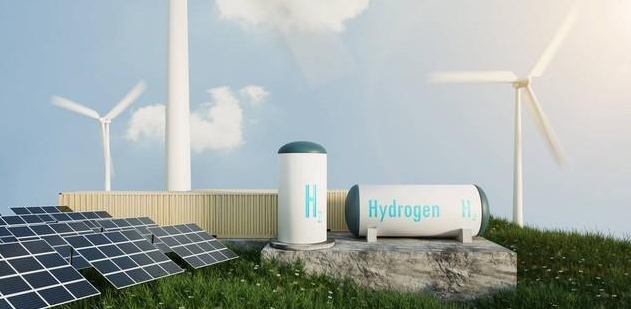
Hydrogen storage methods present various technical challenges. Compressed hydrogen storage requires high pressures, which necessitates robust and expensive containment systems. Liquid hydrogen storage involves maintaining extremely low temperatures, consuming significant energy for liquefaction and insulation. Solid-state hydrogen storage relies on materials that absorb and release hydrogen, often at slow rates. Each method demands specialized technology and infrastructure, complicating the widespread adoption of h2 storage.
Safety concerns pose significant challenges for hydrogen storage. Hydrogen's high diffusivity and buoyancy increase the risk of leaks. Leaked hydrogen can form explosive mixtures with air. Proper ventilation and leak detection systems are essential to mitigate these risks. Additionally, high-pressure storage systems must withstand extreme conditions without failure. Ensuring safety in h2 storage requires rigorous standards and constant monitoring.
The high costs of production and storage hinder the economic viability of hydrogen storage. Producing green hydrogen through electrolysis remains expensive due to the high cost of electricity from renewable sources. Storing hydrogen, whether compressed, liquid, or solid-state, involves significant capital investment in infrastructure and technology. These costs make h2 storage less competitive compared to other energy storage solutions.
Infrastructure development for hydrogen storage presents economic challenges. Establishing a comprehensive hydrogen storage network requires substantial investment. This includes building storage facilities, transportation systems, and distribution networks. The lack of existing infrastructure further escalates costs and delays implementation. Overcoming these economic barriers is crucial for the widespread adoption of h2 storage.
The lack of standardization in hydrogen storage technologies creates regulatory challenges. Different storage methods require specific standards for safety, efficiency, and compatibility. The absence of uniform regulations complicates the development and deployment of h2 storage systems. Establishing standardized guidelines is essential to streamline the adoption process and ensure safety across the industry.
Policy support and incentives play a critical role in overcoming challenges in hydrogen storage. Governments must provide financial incentives, subsidies, and grants to encourage investment in h2 storage technologies. Policies promoting research and development can accelerate technological advancements. Without robust policy support, the economic and technical challenges of hydrogen storage remain insurmountable.
Compressed hydrogen storage involves storing hydrogen gas at high pressures, typically between 350 and 700 bar. Specialized tanks made from materials like carbon fiber or metal alloys contain the compressed gas. These tanks must withstand extreme pressure without compromising safety. The technology requires robust containment systems to prevent leaks and ensure safe storage.
Compressed hydrogen storage offers several advantages. The technology is relatively mature and well-understood. Compressed hydrogen can be quickly dispensed, making it suitable for applications like fuel cell vehicles. The infrastructure for compressed hydrogen storage is also more developed compared to other methods.
However, compressed hydrogen storage has disadvantages. High-pressure storage systems are expensive to produce and maintain. The energy required to compress hydrogen gas is significant, reducing overall energy efficiency. Safety concerns also arise due to the high pressures involved, necessitating rigorous standards and constant monitoring.
Liquid hydrogen storage involves cooling hydrogen gas to cryogenic temperatures, around -253°C, to convert it into a liquid state. Specialized insulated tanks store the liquid hydrogen, minimizing heat transfer and preventing vaporization. This method requires advanced technology to achieve and maintain the low temperatures necessary for liquefaction.
Liquid hydrogen storage provides higher energy density compared to compressed hydrogen. This makes it suitable for applications requiring compact storage solutions, such as aerospace and long-distance transportation. Liquid hydrogen can also be transported more efficiently over long distances.
The disadvantages of liquid hydrogen storage include the high energy consumption required for liquefaction. Maintaining the extremely low temperatures needed for storage adds to the operational costs. The technology also presents safety challenges, as any failure in insulation can lead to rapid vaporization and potential hazards.
Solid-state hydrogen storage involves storing hydrogen within solid materials, such as metal hydrides or chemical compounds. These materials absorb and release hydrogen through chemical reactions. The storage process occurs at lower pressures and temperatures compared to compressed or liquid hydrogen storage.
Solid-state hydrogen storage offers several advantages. The technology allows for safer storage due to lower pressures and temperatures. The materials used can store hydrogen at higher densities, making it suitable for stationary applications and portable devices. Solid-state storage systems also have the potential for longer lifespans.
However, solid-state hydrogen storage has its disadvantages. The absorption and desorption rates of hydrogen in solid materials can be slow, limiting the speed at which hydrogen can be accessed. The materials used for storage can be expensive and may degrade over time. Developing efficient and cost-effective solid-state storage solutions remains a significant challenge.

Future directions for hydrogen storage focus on technological advancements and cost reduction. Researchers aim to develop more efficient storage methods. Innovations in materials science may lead to safer and more compact storage solutions. Policy support and financial incentives will drive further investment in hydrogen storage infrastructure. The global push for clean energy will continue to expand the role of hydrogen storage in the energy landscape.
The blog discussed the environmental, economic, and technical aspects of hydrogen storage. Hydrogen storage offers significant benefits, such as reducing greenhouse gas emissions and integrating renewable energy sources. However, challenges include high costs and safety concerns.
The future outlook for hydrogen storage appears promising. The Biden administration announced over $7 billion to expand hydrogen infrastructure. Appalachia aims to become a leading producer of 'blue' hydrogen.
Balancing the advantages and challenges of hydrogen storage requires continued innovation and policy support. The transition to green hydrogen is essential for a sustainable energy future.
